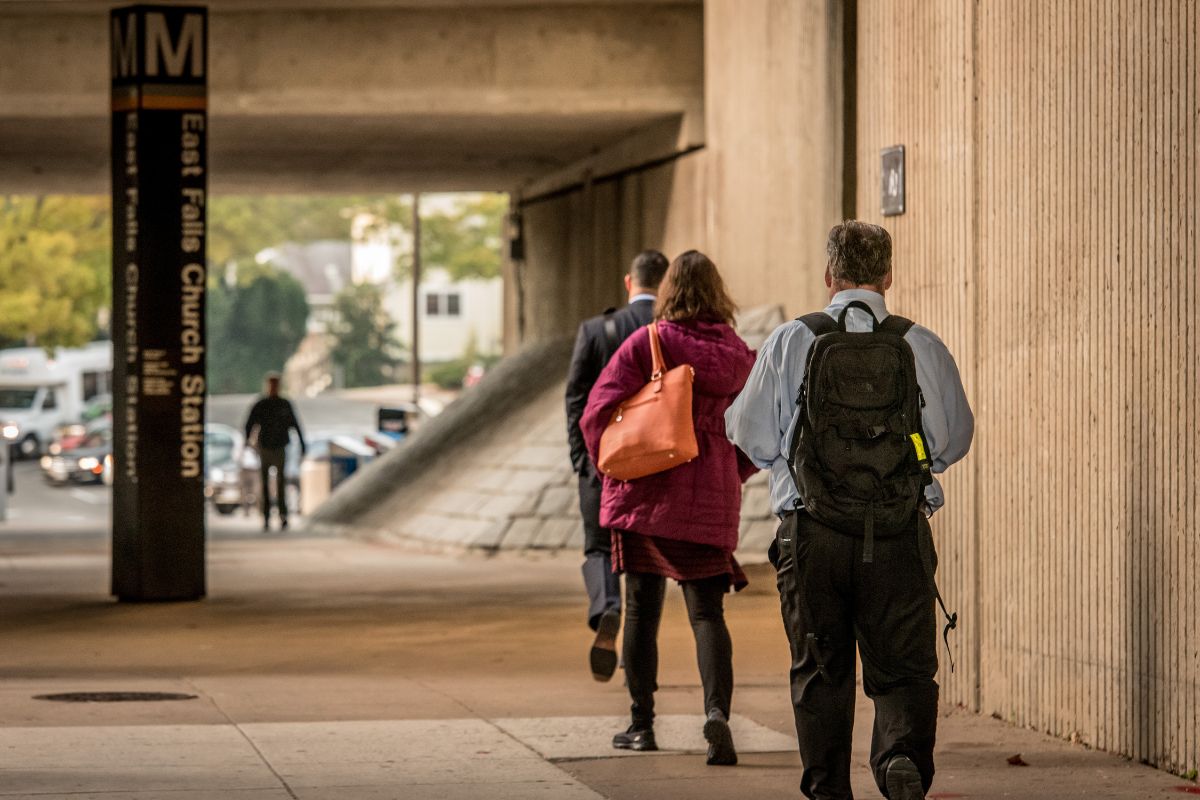The Health & Environmental Benefits of Active Commutes
Active commute modes—walking, biking, and even taking transit—are good for our health, the environment, and our communities. A recent presentation by Katherine Catalano of the American Public Health Association demonstrated their many benefits.
I recently attended Arlington Transportation Partners’ Champions Banquet, which recognizes the efforts of Arlington employers and properties to provide enhanced transportation benefits, amenities, and programs that encourage people to walk, bike, take transit, carpool, vanpool, or choose to telework.

As an avid biker and walker, I was particularly interested in the keynote by Katherine Catalano, deputy director of the American Public Health Association’s Center for Climate, Health and Equity. Ms. Catalano shared data on the many benefits of walking, biking, and taking transit while reinforcing what we already know about the detrimental effects cars can have on our health and the environment.
Here are some key takeaways from her presentation:
Many sectors contribute to global warming, but transportation is the highest CO²-emitting sector in the United States. It makes up 28 percent of all emissions.
Our cars pollute through exhaust, evaporation emissions, road dust, and friction from tire and brake wear. Outdoor air pollution is responsible for a reduction in life expectancy of 2.9 years. That’s more than smoking tobacco. Vulnerable people—the very young, people with asthma, and children living in poverty—are the ones most negatively impacted.
Car-based commutes affect our mental health by contributing to our stress levels and isolating us from others.
Dealing with traffic, honking horns, road construction, and high-speed roads is stressful for most people. In addition, sitting in a car for part of the day isolates us from others. Many Americans report feeling lonely, with 22 percent of all adults in 2023 saying they feel lonely and socially isolated much of the time. Cars reduce our opportunities for physical activity and social interaction with our neighbors and fellow workers.
Walking, biking, and commuting by transit help keep us healthy and happy. They also have no (or very little) negative impact on the environment.
The correlation between active commutes and lower obesity rates is clear: Data shows that countries with higher rates of commuters who walk or bike to work have lower percentages of adults who are obese. Walking and biking also promote greater connectedness with other community members.
Commuting by transit is good for us, too. Thirty percent of transit users get 30+ minutes of physical activity each day. They walk, on average, 19 minutes daily getting to and from stops.
In our transit-rich area with excellent bike and walk infrastructure, commuters are awash in transportation choices. Arlington residents and workers can access most places without needing a car. I hope some of these facts from Ms. Catalano’s presentation provide further incentive for you to choose walking, biking, or transit for your next trip.
To learn more about transportation choices in Arlington, visit Arlington Transportation Partners’ website.
Sam Kittner/Kittner.com









Comments are closed here.
To prevent spam, comments will be approved before appearing on the post. If you have a comment or question, but do not want it to be published, please email WalkArlington.